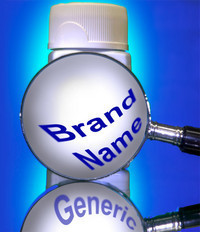The Malaysian Government is heavily subsidizing public healthcare expenditure in order to provide access to health care for all citizens. In 2017, total healthcare expenditure in the country was approximately 9.4% of the annual budget. In order to overcome the increasing cost of health care, the government has implemented a National Generic Medicine Policy in 2006 to promote healthier competition in medicine pricing and to make medicines more affordable to the general public. After 10 years of policy implementation, authors from the Ministry of Health Malaysia assess patients' beliefs about generics.
A cross-sectional survey was carried out in Sibu Hospital, a secondary referral hospital in the central region of Sarawak, Malaysia between January and May 2017. Malay and English version of a validated, self-administered, Generic Medicines Scale questionnaire was used as data collection tool. It consisted of 16 positive and negative statements in 5-point Likert scale that investigated the knowledge and perception of the general public on generics. Items 1‒10 measured patients’ beliefs about efficacy while items 11‒16 measured the beliefs about the similarity of generics.
A total of 158 respondents were recruited with a response rate of 47.6%. However, only 150 analysable dataset were included for data analysis due to 70% missing data in eight questionnaires. More than half of the respondents were female (56.7%), with a mean age of 42.7 years old, had at least secondary education (48.7%) and came from a lower income group of less than RM 1,000 (44.7%).
More than half (60.7%) of the respondents knew about generics and had asked doctors about their medications (66.7%). The mean score for the efficacy domain was 2.97 (95% CI: 2.89, 3.04). The majority of respondents agreed that generics had the same efficacy (41.3%), same effect (36.7%) and can be used for the same illnesses (54.0%) as brand-name medicines. About half of respondents believed that generics were good for less serious diseases (53.3%), took longer to be efficacious (44.7%) and needed longer treatment duration (43.3%). Forty per cent of respondents were neutral on the statement that generics were less efficacious than brand-name antibiotics.
In terms of quality, 41.4% of respondents disagreed that generics were made of lower quality substances, but only 28.7% of respondents believed that generics had better quality control. This suggested that patients still lacked full confidence in generics, especially in their quality.
For the similarity domain, the mean score was 3.18. The majority of respondents were neutral on the statement that generics looked similar (36.0%), tasted similar (44.0%) and had similar side effects (42.7%) compared to brand-name medicines. More than half of respondents agreed that generics had the same usage as brand-name medicines (50.7%) but had a different box (60.0%). This could reflect that the respondents were unsure whether there is a difference between generic and brand-name drugs. Respondents’ beliefs on generics was significantly affected by age (p = 0.001), gender (p = 0.007), ethnicity (p = 0.014), education level (p = 0.028) and knowledge about generics (p = 0.036).
The authors concluded that the study suggested that respondents had mixed beliefs on the efficacy of generics but were neutral on the similarities of generics. Age, gender, ethnicity, education level and knowledge about generics were shown to be affecting the respondents’ perceptions about generics.
Conflict of interest
The authors of the research paper [1] declared that there was no conflict of interest.
Abstracted by Chuo Sing Hong of the Sibu Hospital, Ministry of Health Malaysia.
Related articles
Factors associated with increased side effects and lower perceived efficacy when switching to a generic
Perceptions and attitudes towards generics in South Korea
Reference
1. Hong CS, Jia Jia CW, Siew LM, Lin SKHwa TC. Patients’ beliefs about generic medicines in the outpatient setting, Sibu Hospital. Pharmaceutical Services Programme, Ministry of Health Malaysia, Pharmacy Research Reports, Volume 1, 2018, NMRR ID: NMRR-16-1967-32973.
Permission granted to reproduce for personal and non-commercial use only. All other reproduction, copy or reprinting of all or part of any ‘Content’ found on this website is strictly prohibited without the prior consent of the publisher. Contact the publisher to obtain permission before redistributing.
Copyright – Unless otherwise stated all contents of this website are © 2019 Pro Pharma Communications International. All Rights Reserved.








 0
0











Post your comment